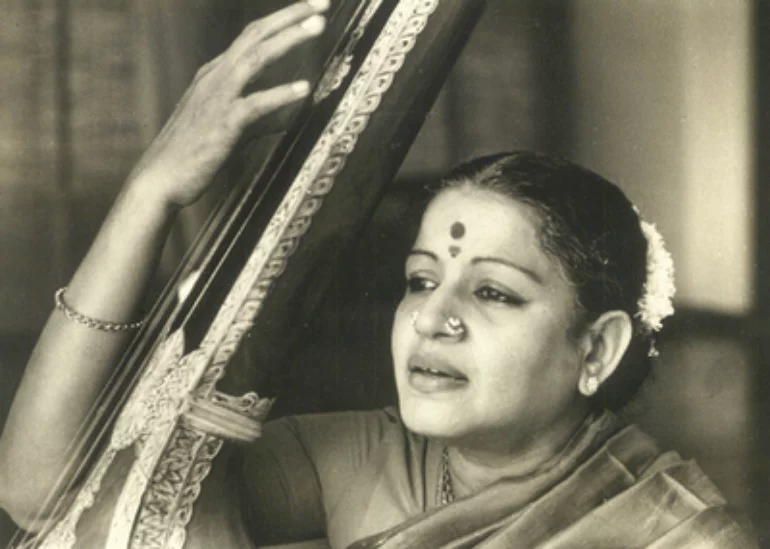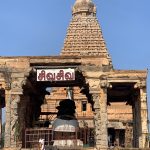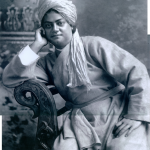I often wake up to her singing the Suprabhatam, rarely a weekend passes without my listening to her singing the divine Bhaja Govindam, I learnt to chant the Vishnu Sahasranamam listening to her dulcet tones on my old portable CD player strolling around Chennai or south Manhattan.
She is the first musician to receive the Bharat Ratna, India’s highest civilian award & the first Indian musician to receive the Ramon Magsasay Award. She gave her first public performance, at the age of eleven in the 100 pillar hall inside the Rockfort Temple, Tiruchirappalli. She gave her first performance at the prestigious Madras Music Academy, India’s best known music academy & known for the most exacting of selection standards when she was 13 years old.
She would have been 105 years old today, if she had been alive in a physical sense but her influence on Indian classical music, her melody, her divinity, her simplicity and her devotion to Indian classical music makes her immortal.
She was/is the finest singing voice I’ve ever heard – male or female; Occidental or Oriental.
M S Subbulakshmi or affectionately MS was the doyen of Carnatic Classical music, the eight note as per the redoubtable Kishori Amonkar. Ustad Bade Ghulam Ali Khan termed her Suswaralakshmi (the goddess of the perfect note) and she was the Nightingale of India as per Sarojini Naidu who actually introduced her in her sole Hindi Movie (Meerabai, 1947). She gave most of her earnings to charity leading an austere, simple life at her apartment in Kotturpuram, Chennai.
She is perhaps not well known outside the South Indian classical music aficionados but if you like music and classical music; here is the link to her singing the Adi Sankara written composition – Bhaja Govindam (https://www.youtube.com/watch?v=Go-mAJpH6_w) with the brilliant preface by C. Rajagopalachari…https://www.youtube.com/watch?v=_wDxCIo4n2w – where he says in his tart tongue – When intelligence (jnana) matures and lodges securely in the heart, it becomes wisdom (vignyana). When that wisdom (vignyana) is integrated with life and issues out in action, it becomes devotion (bhakti). Knowledge (jnana) which has become mature is spoken of as devotion (bhakti). If it does not get transformed into devotion (bhakti), such knowledge (jnana) is useless..
Whether one likes Sanskrit or not, or indeed comprehends the language; whether one believes in divinity or not, whether you are a Hindu or not, MSS’s rendition has moved many of my friends, from New York to New Zealand, from Buenos Aires to Boston. Her voice, her depth of devotion and her diction comes through to everyone – even to untrained ears like mine!





No Comment! Be the first one.